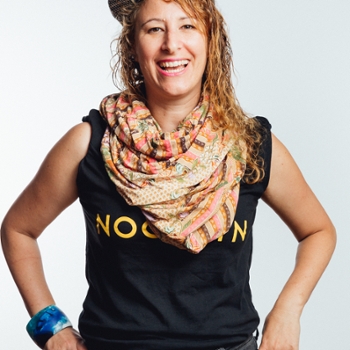Dramaturgical Resources
2018
We Don't Live on Mars Yet
By Talya Chalef & Cast
Over the course of the season, our assistant directors and student dramaturgs will be compiling dramaturgical resources relating to each production as it develops. Below are some links to websites which relate to the history of the play, the biography of the playwright, and sites that contextualize and, we hope, shed light on the directorial approach to the dramatic material.
We hope you find these resources of interest.

Talya Chalef (above)
This semester at Todd, we’re trying something different. We’ve invited Talya Chalef, a playwright/director from Brooklyn—and originally from South Africa via Australia—to devise an original piece of theater with our students. Talya, whose bio can be found here, has a passion for developing and presenting new and exciting experimental theatrical pieces. She is particularly passionate about exploring and dissecting the issues of social justice, and topics like memory history and identity.
Fascinated and appalled by the recent changes in U.S. immigration policy— including the Muslim Ban (more here) and the Mexican Wall (more here and here) to name a few. Talya, along with the ensemble, decided to tackle the topics of home, safety, aliens, dizziness, and uncertainty in this exciting new piece!
Historical Context:
When it comes to the history of immigration in America and Rochester specifically, the only thing that has changed throughout the years is the ethnic group being marginalized. What has’t changed is the opinions about, and prejudices against them. Wave after wave of immigrants from various areas have come to these shores, and wave after wave have been subjected to discrimination at the hands of those that came before them.
These nationalistic sentiments have been around in America since its founding—and they’re only becoming more apparent now that a man who has been labeled a white nationalist sympathizer (also here) is in the Oval Office. By examining newspaper articles about the various waves of immigrants and the public’s reaction to them, we begin to see motifs and themes emerge. The idea that immigrants are lazy, untrustworthy, and a threat to American prosperity are practically ingrained in American culture, and have no foundation in fact or evidence—only fear and uncertainty. These motifs and observations are informing our process as we continue to look into the concepts of "home," "alien," and "safety."
Another key component to our dramaturgical research was interviews with local Rochester refugees. Talya visited Mary’s Place, a community charity organization for refugees, and had the opportunity to sit down with displaced people and discuss their stories and other related thematic elements that our piece hopes to explore. While newspapers, articles, and background readings provide us with insight into overall thematic ideas and feelings about immigration, Talya's interviews with refugees who have settled in Rochester showed us another side: one of bravery and perseverance in the face of uncertainty.
Along with Mary’s Place, we learned of another local organization called Refugees helping Refugees which is a great resource for displaced persons struggling to get their feet planted in the U.S.
Many true stories are touched on in our piece; One is Wong Chin Foo’s. He was an advocate for Chinese-American rights who frequented Rochester and became a well known academic in the area. Similarly, Safi Osmanis a local Somali woman who chooses to help others by donating her time and expertise to the Rochester community. She was was recently recognized for her bravery and charity work in a local art project.
War of the Worlds:
Talya, the cast, and the artistic team explored how the famous 1938 radio broadcast, War of the Worlds, can be used in our piece. Orson Welles brilliantly played with the ideas of American complacency with the media and fear mongering in his fascinating creation and performance of this classic piece. Another video about telephone operators during this radio broadcast caught our eyes as well, so we looked into what we could possibly do with this interesting concept as well.
Other important sources about refugees and immigration:
The official US government definitions of illegal alien, citizen, immigrant/nonimmigrant, etc., can be found here.
Information about the current vetting process for refugees entering the U.S can be found here.
from the ACLU: Nationwide Anti-Refugee Legislation By State.
